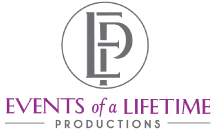Justifying Event Budgets for Experiential Corporate Events
How to Justify Event Budgets for Experiential Corporate Events
Experiential corporate events are on the rise as companies look for innovative ways to engage their employees, clients, and stakeholders. These events go beyond traditional gatherings, focusing on immersive experiences that leave a lasting impression. But with immersive events often requiring higher budgets, the challenge for event planners and marketing teams becomes clear: How can you justify the expense of these experiential events to executives and decision-makers?
In this article, we'll explore proven strategies to help you justify the investment in experiential corporate events, highlighting the key benefits and measurable ROI that they bring to your business.
1. Define Clear Objectives and Outcomes
The first step in justifying an event budget is to establish clear objectives. Whether your goal is to boost employee engagement, launch a new product, or strengthen client relationships, having well-defined outcomes will help build a strong case for the event.
For example, you can set measurable KPIs such as:
- Increased brand awareness (measured by social media mentions and impressions)
- Lead generation (tracked through attendee sign-ups and follow-ups)
- Client satisfaction (captured via post-event surveys)
These clear metrics will enable you to demonstrate the tangible impact of the event, making it easier to justify the budget.
2. Highlight the ROI of Experiential Events
One of the strongest arguments for experiential corporate events is their potential to generate a significant return on investment (ROI). Unlike traditional events, experiential gatherings leave a lasting impact on attendees, leading to higher engagement and loyalty. Here's how experiential events can deliver ROI:
- Brand Loyalty and Advocacy: Engaging experiences foster emotional connections, leading to stronger brand loyalty. This translates to repeat business, word-of-mouth referrals, and increased customer lifetime value.
- Higher Conversion Rates: Immersive events are more likely to convert attendees into customers, especially if they experience your product or service firsthand.
- Social Media Buzz: Well-executed experiential events encourage attendees to share their experience on social media, generating organic brand exposure that can translate into new leads.
By showcasing these potential returns, you can make a strong case for why investing in experiential events is worth the budget.
3. Leverage Case Studies and Success Stories
When seeking approval for event budgets, supporting your proposal with real-world examples can be incredibly persuasive. Highlight case studies and success stories from past events, whether conducted by your own team or industry leaders. Demonstrating how similar investments led to increased engagement, higher sales, or enhanced brand visibility will lend credibility to your proposal.
Consider metrics like:
- ROI from previous events
- Revenue growth following an event
- Increase in attendee satisfaction scores
These examples will not only strengthen your argument but also provide decision-makers with a clearer vision of what a successful event looks like.
4. Emphasize Cost Savings Through Strategic Planning
One of the common concerns around event budgets is the fear of overspending. To counter this, emphasize how strategic planning can lead to cost savings. For example:
- Vendor Negotiations: By leveraging long-term partnerships with vendors, you can secure discounts and better deals.
- Early Bird Bookings: Booking venues, equipment, and accommodations in advance can save up to 20-30% of costs.
- Efficient Use of Technology: Use event management software to streamline operations, reduce manual tasks, and optimize spending.
Showcase how your team's expertise and careful planning can make the most of the allocated budget, providing greater value for money.
5. Showcase the Long-Term Benefits
Experiential corporate events do more than just create a temporary buzz; they offer long-term benefits for the company. These can include improved employee morale, enhanced corporate culture, and a stronger brand presence in the market.
By demonstrating how these benefits extend beyond the event day, you can position the budget as an investment in the company’s growth rather than a one-time expense. Highlight outcomes such as:
- Stronger Team Cohesion: Team-building events can boost employee collaboration and productivity, reducing turnover rates.
- Reinforced Brand Image: Immersive brand experiences help to solidify your company’s reputation in the industry.
- Long-term Customer Engagement: Building stronger relationships with clients and partners can lead to sustainable business growth.
Presenting these long-term advantages will help decision-makers see the value of investing in experiential events as a strategic business move.
6. Prepare a Comprehensive Budget Proposal
Finally, create a detailed and transparent budget proposal that outlines all expected costs, along with justifications for each expense. Break down the budget into categories such as:
- Venue costs
- Event technology
- Food and beverage
- Marketing and promotion
- Entertainment and activities
Include a cost-benefit analysis that highlights the projected returns against the investment. By showing a clear breakdown of costs and potential returns, you can build trust with stakeholders and increase the likelihood of budget approval.
Conclusion
Justifying the budget for experiential corporate events requires a combination of strategic planning, data-driven insights, and persuasive storytelling. By clearly defining your objectives, emphasizing the ROI, leveraging past successes, and showcasing long-term benefits, you can make a compelling case for the investment.
As more companies recognize the value of immersive experiences, the demand for experiential events will continue to grow. Position your event strategy as a catalyst for business success, and you'll be well on your way to securing the budget you need.
Ready to take your corporate events to the next level? Contact our team today to learn how we can help you plan unforgettable experiential events that deliver measurable results.
Master the Art of Event Planning
Read our most recent posts for industry-leading guides, tips, and sneak peeks into the best events. All posts are written by our team of award-winning event planners.




